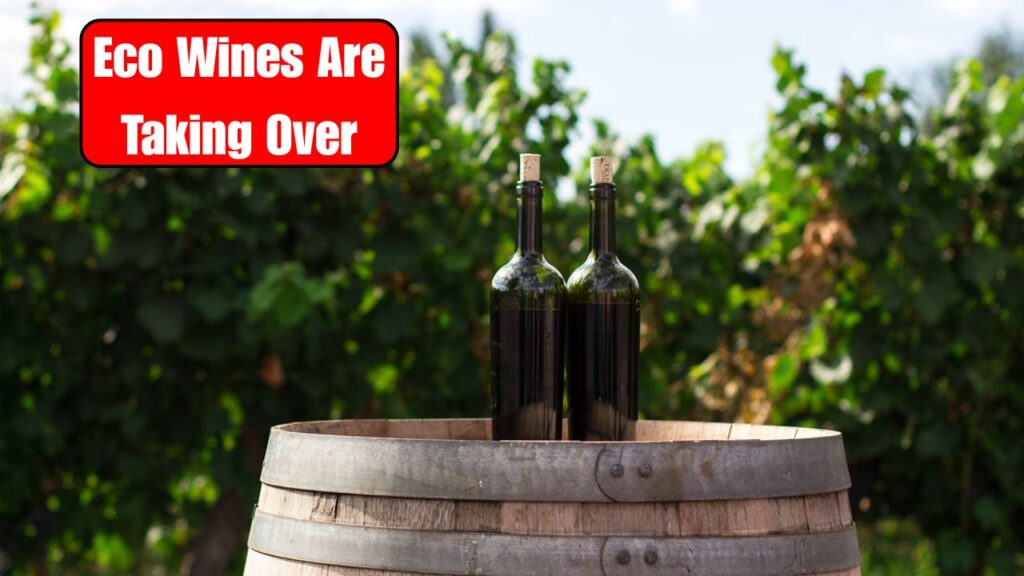Australia’s Wine Industry – Australia’s wine industry is undergoing a remarkable transformation as winemakers embrace sustainability from vineyard to glass. With growing concerns about climate change, water scarcity, and soil health, many Australian vineyards are shifting towards eco-friendly practices that reduce environmental impact while enhancing wine quality. Sustainable winemaking in Australia focuses on organic farming, renewable energy, and biodiversity preservation. This movement not only helps protect natural resources but also ensures that the country’s wine exports remain competitive and appealing to environmentally conscious consumers worldwide.

Sustainable Winemaking Practices Across Australia
Australian winemakers are leading the charge in adopting sustainable winemaking practices that protect both the environment and their local communities. Across regions like Barossa Valley, Margaret River, and Yarra Valley, vineyards are reducing chemical use, conserving water through drip irrigation, and relying on solar energy. Many producers are also focusing on soil regeneration by planting native vegetation and cover crops. This approach improves soil fertility and biodiversity, creating healthier vineyards that can withstand changing weather patterns. By implementing these practices, Australian wineries are setting global benchmarks for environmentally responsible wine production.
Eco-Friendly Vineyards Supporting Australian Communities
In various parts of Australia, sustainable vineyards are helping local communities thrive through job creation, eco-tourism, and environmental education. These vineyards not only produce world-class wines but also serve as models for sustainable rural development. Many are certified under programs like Sustainable Winegrowing Australia, which encourages responsible resource management. By reducing carbon emissions, recycling water, and minimizing waste, these vineyards ensure long-term viability for both the environment and the economy. This shift reflects how sustainability has become central to the identity of Australian winemakers and their growing contribution to global green initiatives.
| Practice | Environmental Benefit |
|---|---|
| Drip Irrigation | Reduces water consumption by 40% |
| Solar Energy Use | Lowers carbon footprint of wineries |
| Organic Fertilizers | Improves soil health naturally |
| Cover Cropping | Prevents soil erosion and retains moisture |
| Recycling Programs | Decreases winery waste production |
Green Technology Innovations in Australian Wine Production
Technology is playing a crucial role in advancing sustainable winemaking across the Australian wine sector. Many wineries are using data-driven tools to monitor soil health, weather patterns, and vine growth. Innovations like precision viticulture and AI-assisted irrigation systems help optimize resource use while maintaining grape quality. Some wineries are even experimenting with lightweight bottles and biodegradable packaging to reduce their carbon footprint. This combination of tradition and technology ensures that Australia’s wine industry continues to evolve responsibly while maintaining its reputation for producing exceptional wines with minimal environmental impact.
Renewable Energy and Sustainability in Australia’s Wineries
Renewable energy sources are becoming a cornerstone of sustainable wineries throughout Australia. Solar panels, wind turbines, and bioenergy systems are being integrated into winery operations to reduce dependency on fossil fuels. For example, several large vineyards in South Australia now operate entirely on solar power during harvest seasons. This commitment to green energy reflects the industry’s determination to combat climate change while maintaining profitability. As consumers increasingly prefer eco-friendly products, these renewable energy efforts give Australian wineries a strong competitive advantage in global markets.
Frequently Asked Questions (FAQs)
1. What does sustainable winemaking mean in Australia?
It refers to producing wine using eco-friendly methods that protect the environment, conserve resources, and support local communities.
2. Which Australian regions lead in sustainable winemaking?
Regions like Barossa Valley, Yarra Valley, and Margaret River are recognized for their strong commitment to sustainable vineyard practices.
3. How do sustainable practices benefit the environment?
They reduce carbon emissions, save water, improve soil health, and promote biodiversity within vineyard ecosystems.
4. Are Australian sustainable wines popular internationally?
Yes, eco-conscious consumers worldwide are increasingly choosing Australian wines known for sustainability and premium quality.




